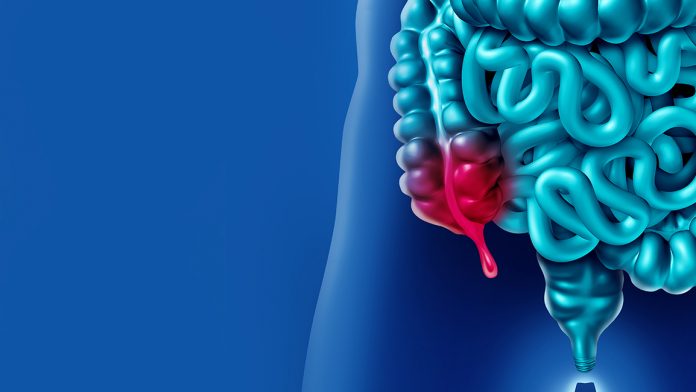IBS is a group of intestinal symptoms that can include abdominal cramping, diarrhea, constipation, bloating, and gas. The cause of IBS is not clear but may be related to an overly sensitive colon or immune system.
According to research from 2021, 7–16 %Trusted Source of Americans experience irritable bowel syndrome (IBS) symptoms.
The condition affects more women and young people. Some people with IBS have minor symptoms. However, for others, the symptoms are significant and disrupt daily life.
What is IBS?
IBS is also known as spastic colon, irritable colon, mucous colitis, and spastic colitis. It is a separate condition from inflammatory bowel disease and isn’t related to other bowel conditions.
IBS is a group of intestinal symptoms that typically occur together. The symptoms vary in severity and duration from person to person. Types of IBS are classified based on certain specific symptoms that occur, such as constipation and weight loss.
One overview from 2018Trusted Source indicates that to diagnose IBS, healthcare professionals look for symptoms that have occurred at least 3 days per month for the last 3 months.
IBS can cause intestinal damage in some cases. However, this is not common. According to a 2022 studyTrusted Source, IBS doesn’t increase your risk of gastrointestinal cancers. But it can still have a significant effect on your life.
What does IBS feel like?
The symptoms of IBS typically include:
cramping
abdominal pain
bloating and gas
constipation
diarrhea
It’s not uncommon for people with IBS to have episodes of both constipation and diarrhea. Symptoms such as bloating and gas typically go away after you have a bowel movement.
Symptoms of IBS aren’t always persistent. They can resolve, only to come back. However, some people do have continuous symptoms.
IBS pain
IBS pain may feel like cramping. With this cramping, you will also have at least two of the following experiences:
some relief of pain after a bowel movement
a change in how often you have a bowel movement
changes in the way your stools look
What causes IBS?
Although there are many ways to treat IBS, the exact cause of IBS is unknown.Possible causes include an overly sensitive colon or immune system. Postinfectious IBS is caused by a previous bacterial infection in the gastrointestinal tract. The varied possible causes make IBS difficult to prevent.
The physical processes involved in IBS can also vary but may consist of the following:
slowed or spastic movements of the colon, causing painful cramping
abnormal serotonin levels in the colon, affecting motility and bowel movements
a bacterial imbalance in the digestive tract
IBS risk factors
Per one 2017 study, IBS risk factors may include:
contracting food poisoning
being assigned female at birth
being exposed to antibiotics
having anxiety or depression
somatic symptom disorder or neuroticism
How do doctors diagnose IBS?
Your doctor may be able to diagnose IBS based on your symptoms. They may also take one or more of the following steps to rule out other possible causes of your symptoms:
prescribe adopting a certain eating pattern or avoid specific food groups for a time to rule out any food allergies
order tests to examine your stool sample to rule out infection
order blood tests to check for anemia and rule out celiac disease
order a colonoscopy
Your doctor will typically only order a colonoscopy if they suspect that colitis, inflammatory bowel disease (Crohn’s disease and ulcerative colitis), or cancer is causing your symptoms.
If you need help finding a primary care doctor, you can check out our tool.
What triggers IBS?
For many people, the key to managing IBS symptoms is to track and avoid triggers. This 2021 study notes that stress and anxiety can be triggers for IBS symptoms for many people.
Your nervous system, to a great degree, controls the automatic movement, or motility, of your digestive system. This means that stress can affect your nerves, making your digestive system overactive.
If you have IBS, your colon may be overly responsive to even slight disruptions of your digestive system. It is also believed that IBS is affected by the immune system, which is also affected by stress.
What foods usually trigger IBS?
More often, certain foods can be common triggers for many people with IBS. However, some of these foods may have a greater effect on you than on others.
It may help to keep a food diary for a while to learn which foods are triggers for you. Some foods that you may need to limit or exclude include:
beans
foods that contain sorbitol, mannitol, or xylitol
onions and some other vegetables,
fruits
certain dairy foods
certain carbohydrate foods
What is the best treatment for IBS?
There is currently no cure for IBS. Treatment is aimed at symptom relief and prevention.
Initially, your doctor may have you make certain lifestyle changes. These home remedies are typically suggested before the use of medication.
What home remedies can help treat IBS?
Certain home remedies or lifestyle changes may help relieve your IBS symptoms without the use of medication. Examples of these lifestyle changes include:
participating in regular physical activity, such as exercising
limiting consuming caffeinated beverages since caffeine stimulates the intestines
minimizing stress (talk therapy, mindfulness, hypnotherapy, and meditation practices may help)
taking probiotics (“good” bacteria normally found in the intestines) to help relieve gas and bloating
taking fiber supplements
quitting smoking if you smoke since IBS may be more prevalent among people who smoke
What should people with IBS eat?
For some people, dietary changes can go a long way in helping ease symptoms. This includes eating smaller meals and avoiding foods that trigger symptoms.
A common eating pattern that doctors and registered dietitians recommend for IBS is the low FODMAP diet.
A FODMAP is a kind of carbohydrate found inside certain foods. Studies have shown links between FODMAPs and some common digestive issues.
Because IBS symptoms vary among people with the condition, approaches to dietary changes need to vary.
What medications treat IBS?
If your symptoms do not improve through home remedies, such as lifestyle or dietary changes, your doctor may suggest medication therapy. Different people can respond differently to the same medication, so you may need to work with your doctor to find the right medication for you.
As with all medications, when considering a new treatment option, it’s important to tell your doctor what you are already taking, including herbal remedies and over-the-counter (OTC) medications. This will help your doctor avoid any medication that could interact with what you are already taking.
Some drugs are used to treat all symptoms of IBS, while other drugs are focused on specific symptoms. Drugs that are used include:
medications to manage muscle spasms
anti-constipation drugs
tricyclic antidepressants to help ease pain
antibiotics
If your main IBS symptom is constipation, there are two drugs the American College of Gastroenterology (ACG) recommends:
linaclotide (Linzess)
lubiprostone (Amitiza)
When should you see a doctor for IBS?
Consider talking with your doctor if you have symptoms lasting longer than a few days or if symptoms become a common occurrence.
You should also speak with your doctor if you experience sudden changes or serious symptoms, such as:
rectal bleeding
persistent pain that is not relieved from passing gas or having a bowel movement
weight loss
decreased appetite
nausea and vomiting
These symptoms could indicate a more serious condition, such as colon cancer.

























